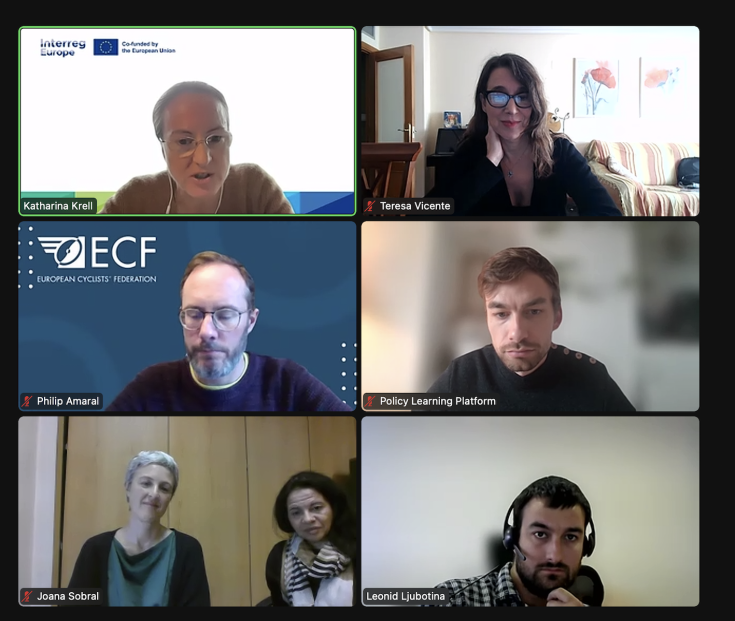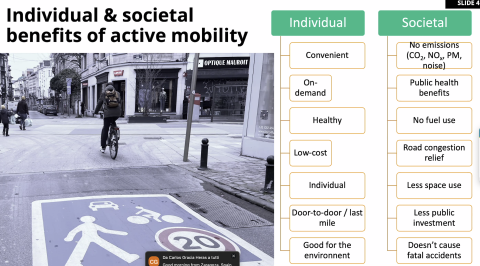EMBRACER at Promoting Cycling in Cities and Regions webinar

On 19 November 2024, the Policy Learning Platform hosted the first episode of the webinar series 'Active Mobility'. The session, who involved more than 90 participants, focused on "Promoting cycling in cities and regions" and EMBRACER was among the speakers, represented by Joana Sobral, Coimbra Municipality, Portugal, discussing the participatory approach to co-design the Coimbra Cycling Network.
Active mobility, such as walking and cycling, is a key element of the low-carbon transport system, helping to reduce carbon emissions and reduce air pollution. It also decreases traffic congestion and enhances urban mobility as a last-mile solution and contributes to improved public health by promoting physical activity.
This webinar series will be focused on the main active transport modes – walking and cycling – considering in particular how to integrate these lesser considered modes into mobility planning, also exploring infrastructure and behaviour change issues. This first episode focused on promoting cycling in cities and regions.

The keynote speech was by Philip Amaral, European Cyclists’ Federation (CycleRight) who focused on the European Declaration on Cycling adopted by the EU in April 2024, and also shared an overview of European structural funds used for cycling projects, as well some relevant case studies across Europe.
Teresa Vicente, Zaragoza City Council, Spain (CYCLING WATERWAYS) told about the behaviour change related to the Zaragoza Cycling Masterplan and on the creation of a cycling culture.
Joana Sobral, Coimbra Municipality, Portugal (EMBRACER), explained the participatory approach to co-design the Coimbra Cycling Network, with an intensification of initiatives to promote cycling mobility, also though the European Mobility Week, to actively involve citizens, and recognising public involvement in policy-making is crucial for building trust and ensuring public investments are well received by the community.
Leonid Ljubotina, University of Zagreb (CycleRight), focused on the SABRINA project to develop safer cycling infrastructures.